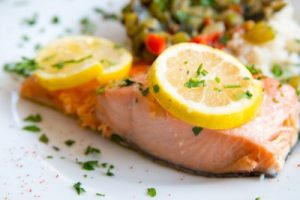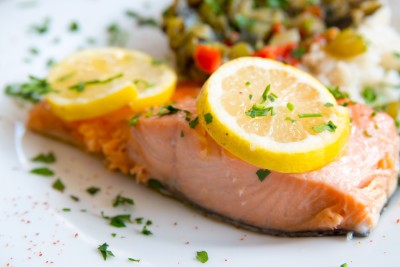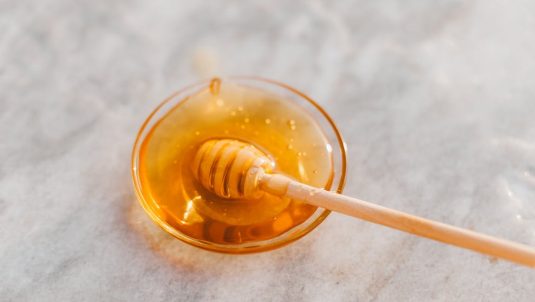For students across the country, it’s crunch time. Finals. You’ve probably heard about so-called “brain food,” foods that you can eat in the days or even hours before a big test to improve your mental acuity and memory. But do they really work?
First, we have to understand the science behind how certain foods interact with the brain. Though the research is still pretty young, we know that there are 4 chemicals and nutrients that are essential to brain function and health.
Glucose
The brain gets most of its energy from converting fats and sugars into glucose. It’s essential for brain function, the same way gas is essential for your car. Candy can give you a quick-release of glucose, but slow release carbs are a better option because it helps to regulate your glucose levels. The brain is at its best when your blood glucose level is around 25 grams. That’s about what you get from a medium-sized banana.
Fatty Acids
Polyunsaturated fatty acids (commonly known as Omega-3 and Omega-6) strengthen the synapses related to memory. Additionally, these fatty acids help create new brain cells. We used to think people were born with a certain number, and when you lose them, they’re gone. It turns out that isn’t true- the body does create new brain cells, and fatty acids help.
Amino Acids
Amino acids come from protein. They connect important neurotransmitters like dopamine (for immune and nervous system function), norepinephrine (for concentration and alertness), serotonin (for mood, sleep, memory, and learning), and acetylcholine (for memory storage and recall). It’s recommended to have some source of protein with every meal and snack.
Antioxidants
These combat the oxidative stress that destroys cells, including brain cells. It happens when your body converts glucose to energy; the extra oxygen created becomes free radicals. Antioxidants block free radicals and repair damaged cells, so your brain doesn’t have to work so hard.
 The Best Foods for Brain Function and Health
The Best Foods for Brain Function and Health
Most of the research doesn’t support the concept of eating a certain food right before an exam. Instead, brain food works like any other good diet: over time. Some effects will become noticeable sooner (especially if your diet was really bad to begin with) and some give you long-term benefits. Some great Brain Foods include:
Walnuts: They promote blood flow and improve oxygen delivery to the brain. Recent research presented at the 2010 International Alzheimer’s Conference found that mice who regularly ate walnuts had better memory, learning, and motor skill coordination.
Coffee: Regular coffee drinkers know that a daily dose of caffeine can improves alertness. The antioxidants in coffee also maintain brain health. Just be careful not to over-indulge.
Water: Did you know that dehydration actually causes the brain to shrink temporarily? It impairs short term memory, focus, and decision making. Staying hydrated is one of those simple things we can do to contribute to the healthy function of our whole body.
Berries: A recent study from Annals of Neurology showed a link between a diet high in berries and a slower decline in memory and focus. Plus, they give you a healthy sugar boost. Just remember that conventional berries tend to have high levels of pesticide contamination, so opt for organic.
Salmon and Sardines: The Omega 3s and acids EPA and DHA in these fatty fish lower the risk of dementia and stroke while improving memory and focus. It’s recommended to eat two servings a week for brain health.
Eggs: Eggs are a good source of choline, an important part of acetylcholine production, a neurotransmitter that helps improve memory. Plus, the protein contributes amino acids.
Garlic: According to a study from The Medical Journal of the American Cancer Society, certain compounds found in garlic may kill brain cancer cells.
Avocados: Monounsaturated fats improve vascular health and blood flow, helping your brain get more oxygen. Olive Oil and Chocolate are also good sources of monounsaturated fats.
Will eating fish twice a week make you suddenly smarter? Probably not… but working these foods into your diet regularly can help you function at your full potential. What’s your favorite way to eat these “brain foods”?
Find restaurants with organic options near you
Search by city or see restaurants close to you.






 Sign in with Google
Sign in with Google Sign in with Facebook
Sign in with Facebook